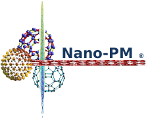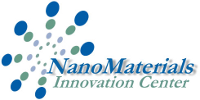Dr. Rutledge Ellis-Behnke, Ph.D.
Research Affiliate, Brain & Cognitive Sciences, MIT
Prof, University of Heidelberg
Director, Nanomedicine Translational Think Tank
 Rutledge Ellis-Behnke is Professor at the University of Heidelberg, Mannheim Faculty of Medicine where he is the Director of the Nanomedicine Translational Think Tank. In addition, he is a Research Affiliate in the Brain and Cognitive Sciences department at the Massachusetts Institute of Technology. Previously he was Associate Director of the Technology Transfer Office and Associate Professor in the Faculty of Medicine at the University of Hong Kong. His primary research interest is using nanotechnology to reconnect the disconnected parts of the brain in order to restore function. Ellis-Behnke received his PhD from MIT in Neuroscience, BSci from Rutgers University and graduated from Harvard Business School’s International Senior Manager’s Program (AMP/ISMP).
Rutledge Ellis-Behnke is Professor at the University of Heidelberg, Mannheim Faculty of Medicine where he is the Director of the Nanomedicine Translational Think Tank. In addition, he is a Research Affiliate in the Brain and Cognitive Sciences department at the Massachusetts Institute of Technology. Previously he was Associate Director of the Technology Transfer Office and Associate Professor in the Faculty of Medicine at the University of Hong Kong. His primary research interest is using nanotechnology to reconnect the disconnected parts of the brain in order to restore function. Ellis-Behnke received his PhD from MIT in Neuroscience, BSci from Rutgers University and graduated from Harvard Business School’s International Senior Manager’s Program (AMP/ISMP).
Prior to returning to school to pursue his PhD, Ellis-Behnke held various management positions including Senior Vice President of Huntingdon, a public company for testing and consulting services and Co-founder/CEO in 1995 of one of the first internet companies to do online commerce.
Ellis-Behnke is Associate Editor/Neurology for the journal Nanomedicine: Nanotechnology, Biology and Medicine; member of both the Executive and Scientific Advisory Boards for the Glaucoma Foundation; member of the Executive Board of the Asia Foundation for Cancer Research; member of the China Spinal Cord Clinical Trial Network, Society for Neuroscience, American Chemical Society, Association for Research in Vision and Ophthalmology and Sigma Xi, the scientific research society.
Technology Review named his "Nanohealing" discoveries one of the "Top 10 Emerging Technologies of 2007." His "Nano Neuro Knitting" and "Immediate Hemostasis" technologies have each been licensed for translation to humans.
In addition to his work in neuroscience and nanomedicine Ellis-Behnke introduced the TabletPC to MIT and the University of Hong Kong as part of the migration to the paperless classroom to deliver all course material and texts to the students digitally.







































